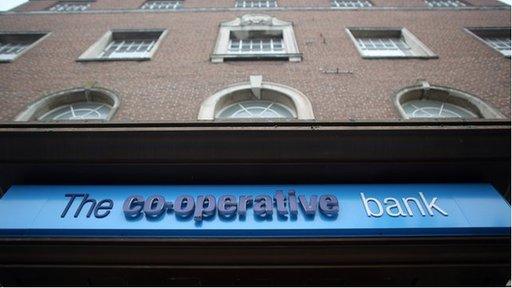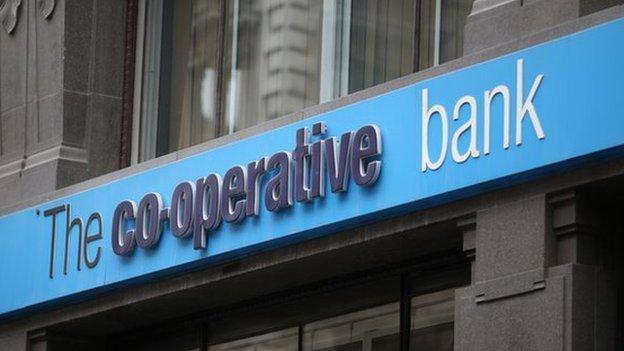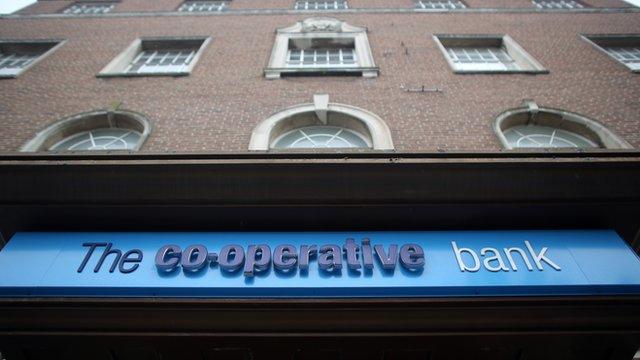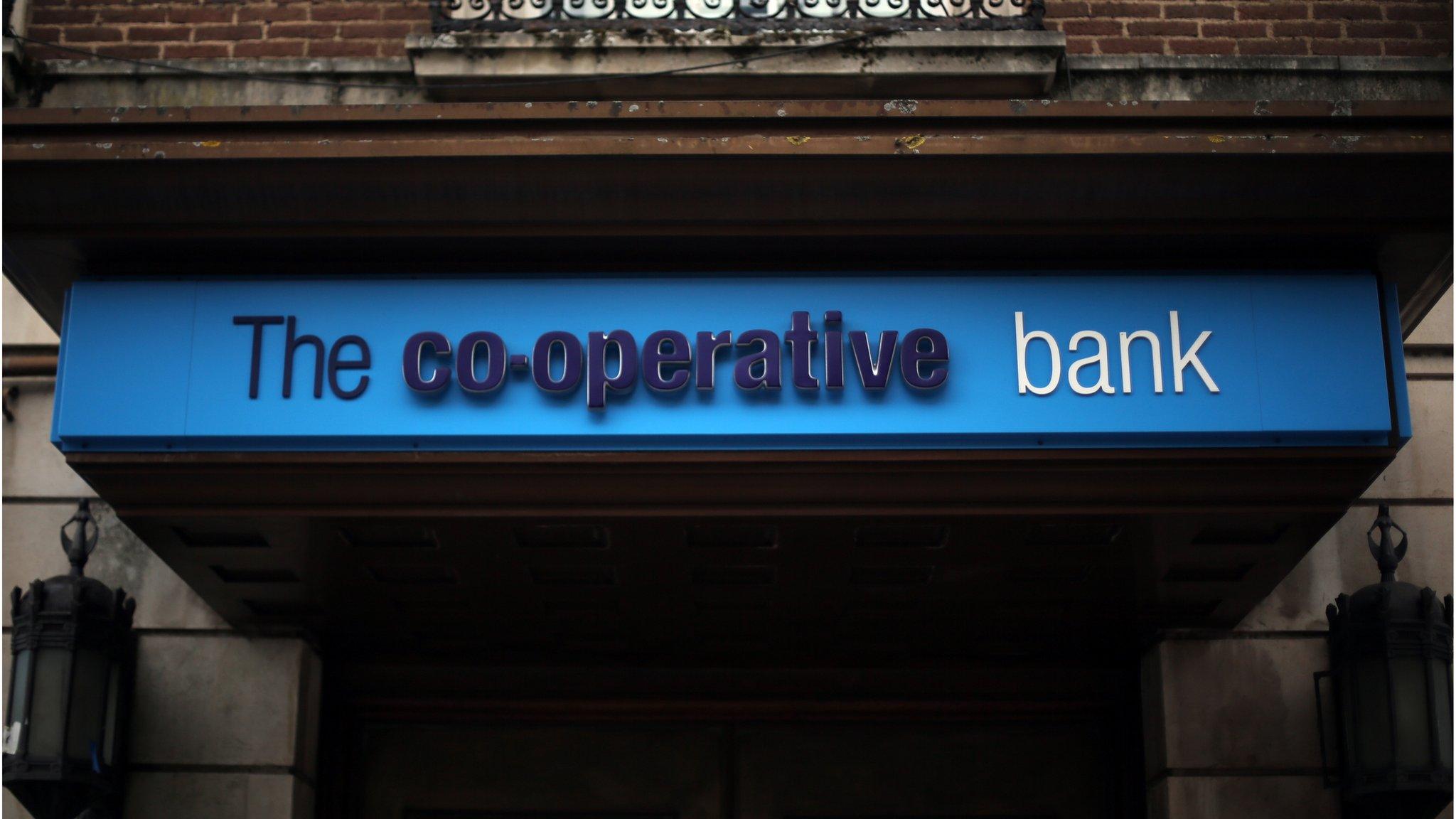Co-op Bank says 'no surprise' if it fails stress test
- Published

The chief executive of the Co-op Bank has admitted it would come as "no surprise" if the bank failed a Bank of England stress test later this month.
The results of the stress tests on eight banks, including the Co-op Bank, are due to be published on 16 December.
The bank has already admitted it has insufficient capital to cope with the most severe economic shock.
But Co-op Bank head Niall Booker said that, overall, the bank was much stronger than a year ago.
Last year, the bank had to be rescued after a £1.5bn black hole was found in its balance sheet following the collapse of its attempt to buy 631 Lloyds Bank branches.
A group of private investors, made up mostly of hedge funds, took a majority stake in the business after they injected funds into the bank.
Since last year, the Co-op Bank has added £1.9bn in extra capital to its balance sheet.
'Vulnerable'
When it published its half-year results in August, the Co-op Bank said it did not have sufficient funds to withstand a "one in 25" stress scenario.
This is a measure of the kind of financial crisis that, on the balance of probabilities, might occur once every 25 years.
Responding to press speculation that the Co-op Bank would fail the stress tests, Mr Booker said: "Given the disclosures to the market in August, it will come as no surprise if the Bank does not meet the desired capital ratios in the stress tests due to be announced in December.
"Almost 70% of our customer assets are residential mortgages and it has always been clear to ourselves and the regulator that we are vulnerable to these tests at this point in our turnaround."
The stress tests have been designed to determined the eight banks' ability to withstand a theoretical 35% crash in house prices, surging unemployment and interest rates.
They are based on the banks' balance sheets up to the end of 2013.
'Significant strides'
The Prudential Regulation Authority (PRA) will announce the results of the stress tests on 16 December. It is believed the PRA could tweak the five-year turnaround plan already agreed between the Co-op Bank and regulators including the Financial Conduct Authority (FCA).
Mr Booker added: "The stress tests were undertaken at the end of last year and in 2014 we have already made significant strides through capital raising and, as we stated at half year, are ahead of schedule in the disposal and run down of non-core assets."
His comments come as a survey found that almost two-thirds of the public said they still viewed the Co-operative Group favourably, despite the wave of negative publicity following the near-collapse of the Group's banking arm last year.
A YouGov opinion poll of 180,000 people, external found 62% of people view the Co-operative Group in a positive light.
The Co-op Group remains the bank's largest shareholder with a 20% stake in the bank.
Separately Co-op Bank said it had sold its Illius Properties business to Salmon Real Estate for £157.5m as part of its plan to sell non-core assets and bolster its capital.
Illius purchases repossessed properties with the intention of selling them on at a profit.
- Published27 October 2014

- Published23 October 2014

- Published22 August 2014
